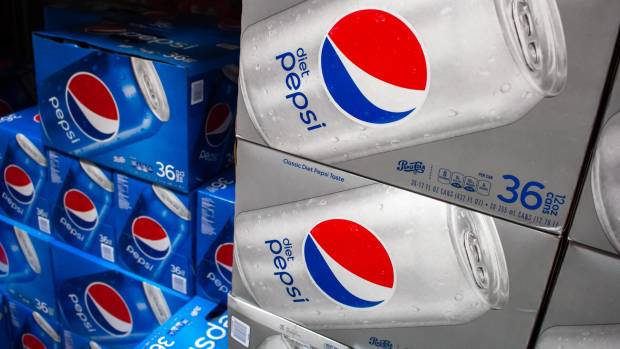
In 1965, James Schlatter, a chemist working for G.D. Searle & Co., was researching an anti-ulcer drug when he happened to lick his finger and noticed a sweet taste.
It turned out that Schlatter had synthesized aspartame and it eventually became one of the world's most widely used artificial sweeteners.
Roughly 200 times sweeter than the regular table sugar, aspartame can be found in about 6,000 products, including Coca-Cola's (KO) -) Diet Coke, Mars' Extra sugar-free chewing gum and pharmaceutical preparations,
The primary source for exposure to aspartame in the U.S. is diet soft drinks.
The ingredient has been a source of controversy regarding its possible side effects and some studies have linked aspartame to weight gain, increased appetite, diabetes, and obesity-related diseases.
The U.S. Food & Drug Administration first approved aspartame as a sweetener in 1974.
WHO Warns 'Possibly Carcinogenic'
The agency said on its website that "scientific evidence has continued to support the agency’s conclusion that aspartame is safe for the general population when made under good manufacturing practices and used under the approved conditions of use."
"The safety of a food additive must be supported by science that demonstrates its use meets the FDA’s safety standard," the FDA said. "Aspartame is one of the most studied food additives in the human food supply."
To determine the safety of the ingredient, The FDA said it has reviewed more than 100 studies designed to identify possible toxic effects, "including studies that assess effects on the reproductive and nervous systems, carcinogenicity, and metabolism."
Nevertheless, aspartame will be listed as "possibly carcinogenic to humans" on July 14 for the first time by the International Agency for Research on Cancer (IARC), the World Health Organization's (WHO) cancer research arm.
PepsiCo (PEP) -), which posted stronger-than-expected second quarter earnings on July 13, has a stake in aspartame, as Diet Pepsi is one of the company's most popular global brands.
PepsiCo was one of the companies that used the sweetener in its U.S. diet sodas but removed it in 2015. The company brought it back a year later.
In 2021, Diet Pepsi brand's U.S. market share came to 3.8%, according to Statista.
In response to the WHO's move, Chief Financial Officer Hugh Johnston told Reuters that PepsiCo does not intend to change its product portfolio.
Citing Multiple Studies
He cited the multiple studies on aspartame, which had concluded it is safe as an ingredient.
"By far the weight of the scientific evidence suggests that aspartame is safe as an ingredient, and obviously has the benefit of being zero calorie," he said. "It is probably in a few products, but it's not a huge part."
PepsiCo introduced Diet Pepsi in 1964, one year before James Schlatter’s discovery, and it became the first diet cola to be distributed on a national scale in the U.S.
Doctors at UCLA said in a July 2022 post that "when it comes to drinking diet soda, we think it’s wise to err on the side of caution."
"Rather than consume it daily, save it for an occasional treat," the post said. "Many people find that it’s the bubbles as much as the sweet taste that they crave. That makes the many varieties of fizzy water that are now available a viable option."
A 2021 study in the journal Nutrients said that “knowledge about advantages and disadvantages of aspartame is crucial to assess the risk of its harmful impact on health.”
“According to current knowledge benefits of aspartame use outweighs the possible side effects, hence this artificial sweetener remains basic excipient in products,” the report said. “Taking to account that aspartame is a widely used artificial sweetener, it seems appropriate to continue research on safety.”







